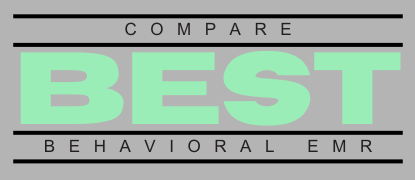Your behavioral health EMR is supposed to enhance your practice management, streamline documentation, and support strong client relationships. But what if your current behavioral health EMR is actually working against you, making client interactions awkward or impersonal? Choosing the right EMR isn’t just about efficient operations—it’s also about ensuring your software supports and enhances client care. In this article, we’ll outline signs that your EMR could be negatively affecting your client relationships and provide actionable tips to help you choose an EMR solution that’s truly client-focused.
Signs Your Behavioral Health EMR is Negatively Impacting Client Relationships
1. Excessive Screen Time During Sessions
One of the clearest signs your current EMR is harming your client relationships is an increase in screen time during sessions. If your software demands lengthy documentation processes or complex navigation, it takes your attention away from clients. Behavioral health is inherently personal, and too much time staring at a screen can make clients feel undervalued.
Consider:
- Are you frequently apologizing to clients for spending time on documentation during sessions?
- Do you find it challenging to maintain eye contact or actively listen due to EMR distractions?
If you answered yes, your EMR might be negatively impacting your rapport.
2. Difficulty Accessing Important Client Information Quickly
A good behavioral health EMR should allow quick and intuitive access to client documentation, progress notes, and treatment plans. If you regularly struggle to find important client data, it can disrupt session flow and impact your ability to deliver personalized care. Clients notice when you seem unprepared or unsure.
Ask yourself:
- Do you often feel stressed searching for client information during sessions?
- Are delays caused by your EMR affecting the quality and continuity of care?
3. Limited or Clunky Client Communication Tools
Modern behavioral health EMRs often include integrated client communication features, such as secure messaging, appointment reminders, and telehealth capabilities. If your current system lacks these features or makes them cumbersome, it might impact client satisfaction and overall experience.
Evaluate:
- Do clients frequently express frustration with scheduling or communication?
- Are your no-show rates increasing due to poor communication tools?
4. Poor Integration and Workflow Interruptions
Your EMR should seamlessly integrate with other essential software tools used by your practice, including billing systems, scheduling, and reporting tools. Lack of integration can cause workflow interruptions and errors, ultimately affecting client satisfaction and your practice’s operational health.
Signs of poor integration include:
- Duplicative data entry tasks
- Frequent miscommunications regarding appointments or billing issues
How to Choose the Right Behavioral Health EMR for Better Client Relationships
Prioritize User-Friendly Interfaces
When evaluating a new EMR, prioritize intuitive, user-friendly interfaces. Your EMR should allow easy documentation without extensive training or constant troubleshooting. During demonstrations, imagine yourself in a session: Is it easy to navigate and document without taking attention away from your clients?
Look for Integrated Client Communication
Ensure the EMR offers integrated client communication tools, including secure messaging, automated appointment reminders, and telehealth options. These features enhance the client experience and reduce administrative burdens.
Confirm Seamless Integration Capabilities
Choose a behavioral health EMR that integrates smoothly with your existing practice management and billing software. Seamless integration significantly reduces workflow interruptions, allowing you to focus on your clients.
Seek Customizable Documentation Templates
Effective EMRs offer customizable documentation templates, allowing clinicians to efficiently document sessions without sacrificing personalized care. Templates tailored to your specialty and workflows help clinicians balance thorough documentation with attentive client care.
Consider Client-Centric Features
Evaluate EMRs based on their ability to support client-centric care. Features such as patient portals, easy-to-understand session summaries, and intuitive online scheduling enhance client interactions and strengthen relationships.
Take the Next Step: Identify the Best EMR for Your Practice
If you’ve recognized signs that your current behavioral health EMR is impacting your relationships with clients, it’s time to explore better options. Choosing the right EMR can significantly enhance both the quality of your client interactions and the efficiency of your practice operations.
Wondering how to start? Take advantage of our free practice analysis. Our experts will review your practice’s unique needs and offer personalized recommendations to help you select the ideal behavioral health EMR.
For additional insights, check out these helpful articles:
- Choosing the Right Behavioral Health EHR: What to Look For
- How EMR Software Improves Patient Engagement in Behavioral Health Practices
Conclusion
Your behavioral health EMR should support—not undermine—your client relationships. Recognizing the signs of a problematic EMR is the first step toward creating a more client-focused and efficient practice. Ready to explore options tailored specifically to your needs? Get started today with our free practice analysis and discover the EMR solutions that will help your practice thrive.
Meta Description: Is your behavioral health EMR hurting client relationships? Learn key warning signs and how to choose an EMR that enhances client care and satisfaction.
